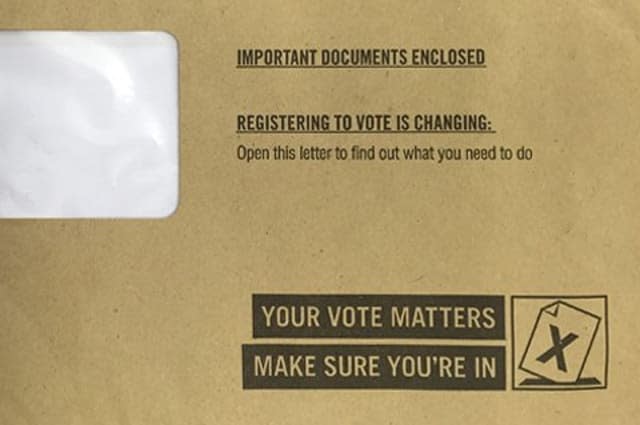Why ignoring this letter from the council could cost you £1,000

We're all used to getting junk mail, and it's easy to just chuck away anything that you don't fancy dealing with.
But there's one brown envelope set to pop through your letter-box in the next few weeks that could cost you £1,000 to ignore. It's the Household Enquiry Form from your local council, and you'll be fined if you don't fill it in.
See also: Should voting be rewarded with a prize? Should it be compulsory?
See also: Are you sure you have to pay council tax?
The letter is part of the Electoral Commission's Annual Canvass, but is usually sent out by local councils. It lists all the people that are recorded as living at your property.
You need to check the list, and either amend it or confirm the details; anyone that lives in the property can do so.
If anyone has moved in or out, if anyone's turned 18 or if there are any other changes, you need to let the council know - and you still need to respond even if all the information is correct. Every council has a different deadline.
"In truth, you're unlikely to be fined if you miss the council's deadline before the final November cut-off, it's just some councils ask you to send it back earlier," says Megan French of MoneySavingExpert.com.
"Why take the risk, though, when it only takes five seconds?"
If you do throw the form away by mistake - or if it fails to arrive - the council will send you another one. However, it is your responsibility to ask.
If the council already has the correct information, that's the last you'll hear about it. However, if there's a new adult at your address, they'll be sent an invitation to register to vote.
At least one council has already fallen foul of householders mistrusting the form.
Bath and North East Somerset Council thought it could be helpful to email people to encourage them to fill the form out online.
However, many residents thought it looked awfully like a scam email, and the council has been forced to issue a clarification. It points out that it would never send an unsolicited email asking for someone's private financial information.




